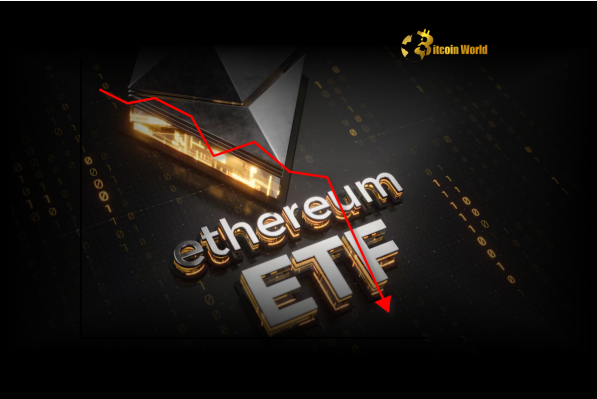BitcoinWorld

Hong Kong’s Milestone: Stablecoin Bill Passed, Paving Way for Licensed Issuers by Year-End
Big news from Asia’s financial hub! Hong Kong has taken a significant step forward in its quest to become a leading center for virtual assets. The city’s Legislative Council has officially passed the Stablecoin Bill, a move poised to reshape the landscape of Hong Kong stablecoin regulation and pave the way for licensed issuers.
Understanding the New Hong Kong Stablecoin Regulation
The passage of the Stablecoin Bill in its third reading marks a crucial legislative achievement for Hong Kong. Confirmed by legislator Johnny Ng on X, this new law establishes a clear framework for regulating stablecoins within the special administrative region. Until now, the regulatory status of stablecoins has been less defined, creating uncertainty for businesses and investors alike. This bill aims to bring clarity and structure to this rapidly evolving segment of the digital asset market.
The core purpose of this legislation is to introduce a robust licensing regime. This means that entities wishing to issue stablecoins in Hong Kong will need to apply for and obtain a license from the relevant authority. This move aligns with global trends where regulators are increasingly scrutinizing stablecoins due to their potential impact on financial stability and monetary policy.
Paving the Way for Stablecoin Licensing
One of the most anticipated aspects of the new law is the upcoming opportunity for stablecoin licensing. The legislation sets the stage for major entities – potentially including banks, financial institutions, and large fintech firms – to seek official approval from the Hong Kong Monetary Authority (HKMA). The HKMA is the city’s central banking institution and financial regulator, making it the natural body to oversee stablecoin issuance.
Applications for these licenses are expected to open by the end of the year. This timeline provides potential issuers with a clear window to prepare their applications, ensuring they meet the stringent requirements set forth by the HKMA. The licensing process is likely to involve rigorous checks on the issuer’s financial stability, governance structure, compliance protocols (including Anti-Money Laundering and Counter-Terrorist Financing measures), and the mechanisms backing the stablecoin.
Impact on Hong Kong’s Digital Assets Landscape
The introduction of regulated stablecoin issuance is set to have a profound impact on the broader Hong Kong digital assets ecosystem. Stablecoins are seen as a critical bridge between traditional finance and the crypto world, offering stability often lacking in volatile cryptocurrencies like Bitcoin and Ethereum. By regulating stablecoins, Hong Kong aims to foster a safer and more trustworthy environment for digital asset activities.
Benefits for the ecosystem could include:
- Increased Confidence: A regulated framework can boost investor and institutional confidence in stablecoins issued within Hong Kong.
- Enhanced Stability: Clear rules around reserves and redemption mechanisms can improve the stability and reliability of stablecoins.
- Facilitating Transactions: Regulated stablecoins can become more viable for payments, remittances, and other real-world use cases, as hoped by legislator Johnny Ng.
- Attracting Innovation: A clear regulatory path can encourage more businesses to build services and products utilizing stablecoins in Hong Kong.
This development reinforces Hong Kong’s ambition to become a leading global virtual asset hub, building on previous steps like the licensing regime for virtual asset trading platforms.
What the Stablecoin Bill Means for Crypto Regulation
The passage of the stablecoin bill is a significant development in the global conversation around crypto regulation Hong Kong is actively participating in. It signals Hong Kong’s proactive approach to managing the risks associated with digital assets while harnessing their potential benefits. The focus on stablecoins is particularly noteworthy given the global attention they have received from regulators in jurisdictions like the United States and the European Union.
Hong Kong’s framework is likely to focus initially on stablecoins pegged to the Hong Kong Dollar or other fiat currencies, requiring robust reserve management and potentially one-to-one backing. This move places Hong Kong among the pioneering jurisdictions implementing comprehensive stablecoin regulations, distinguishing it from places with less defined rules.
While the bill addresses stablecoin issuance, it is part of a larger, evolving regulatory mosaic for digital assets in Hong Kong. Future regulations may address other aspects of the crypto market, but this stablecoin law provides a foundational piece for integrating this specific type of digital asset into the regulated financial system.
Conclusion
The approval of the Stablecoin Bill is a landmark moment for Hong Kong’s digital asset strategy. By establishing a clear path for stablecoin licensing under the HKMA, the city is taking decisive action to foster a regulated, stable, and innovative environment for digital currencies. This move is expected to strengthen Hong Kong’s position as a hub for Hong Kong digital assets and contribute to the broader maturity of the global crypto market. As applications for licenses open by year-end, the world will be watching to see how this new framework unfolds and contributes to the development of real-world use cases for stablecoins within a regulated ecosystem.
To learn more about the latest crypto regulation trends, explore our article on key developments shaping the digital asset landscape’s future.
This post Hong Kong’s Milestone: Stablecoin Bill Passed, Paving Way for Licensed Issuers by Year-End first appeared on BitcoinWorld and is written by Editorial Team





